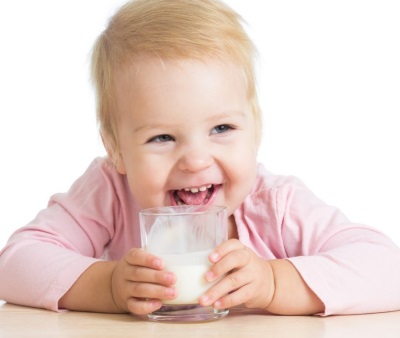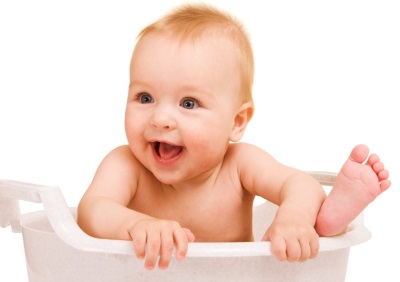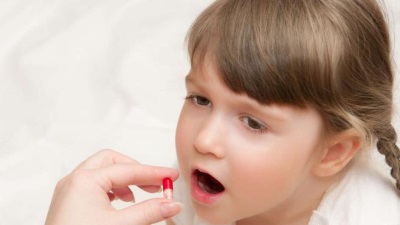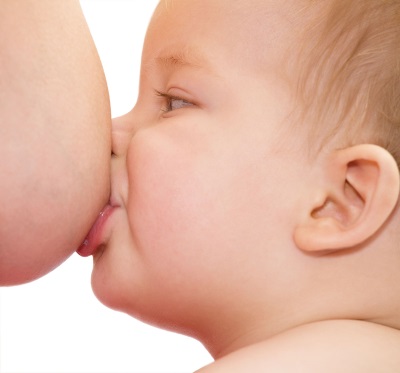How to restore the microflora of the child after taking antibiotics?
Diseases in childhood can sometimes not be cured without antibiotics. However, these drugs have a lot of side effects, so when a child is prescribed an antimicrobial agent, parents are interested in how to reduce its negative effect on the child’s body and what to do if the antibiotic has affected the baby’s digestion.
What are dangerous antibiotics?
Prolonged use of antimicrobial drugs, especially in high doses, can adversely affect the health of the child. It can lead to:
- Impaired digestion.
- Weakening of the immune system.
- Allergies.
- Eczema or dermatitis.
- Violation of the liver.
- Kidney damage.
Why is microflora restoration necessary?
Antimicrobial agents, after being released into the blood, are distributed throughout the body in order to overcome the causative agent of a bacterial infection. But, getting into different organs, antibacterial drugs affect their work. First of all, they affect the colonies of beneficial bacteria that are normally in the body of the baby in the intestines.
When the number of useful flora decreases, an imbalance (dysbacteriosis) occurs. It is manifested by problems with the work of the digestive organs. The child begins to digest food poorly diarrheathere may be bouts of vomiting or constipation.
The permeability of the intestinal wall increases, which is one of the factors causing the appearance of allergic reactions. As a result, the baby has a rash. At the same time, the harmful flora begins to multiply in the intestine, which adversely affects the immunity of the baby.
Ways to restore bowel
The restoration of the digestive tract should be taken care of from the very beginning of antibiotics. If the baby is breastfed, for the period of treatment it is recommended to cancel complementary foods and only breast-feeding. Older children should be fed at a minimum - let's feed the baby according to appetite, but better in smaller quantities. But the child should have enough drinking. In some cases, kiddies shown additional use of enzymes.
After completing a course of antibiotics in infants, breast milk is still an important means of restoring bowel work. It is rich in a special bifidus factor that contributes to the colonization of the baby’s digestive tract with useful flora. If, before the disease, the baby has already begun to get acquainted with supplements, after infection it is recommended to postpone returning to the usual menu.
The emphasis in restoring the balance of microorganisms should be on nutrition, rather than on medicinal preparations. Food during the recovery period should be given in small amounts. At this time, the child should not offer too fatty foods.
Easily digestible foods are recommended. To restore the flora in the intestine, you can also give the crumbs live bacteria in the form of drugs group probiotics after antibiotics. The fact that the microbial flora recovered, the mother will notice the normalization of the chair and the general condition of the child.
Recovery of the body as a whole
In restoring the liver and other internal organs of the baby, an important role is given to the nutrition of the child. In the diet of the crumbs should not be fried and very fat. All food is processed for the child by sparing methods - cooked, stewed, boiled for a couple. The kid should receive daily dairy products and vegetables.
Equally important for a successful recovery is the daily regimen. It is necessary to organize the day of the baby so that the child will sleep well, walk a lot, receive cheerfulness from light physical exertion (morning exercises, outdoor games and gymnastics during the day are recommended).

Contact with other children for 5-7 days after antibiotic treatment should be limited to eliminate the risk of catching the virus while it is still immature.
Opinion E. Komarovsky
Famous doctor sure that antibiotics should be prescribed only when necessary. In this case, the drugs that give small children, Komarovsky calls low-toxic. Since they are almost always prescribed for a short period, according to the popular pediatrician, no treatment is required for children after the use of antibiotics.
Komarovsky connects those digestive disorders that often appear after antibiotic therapy with the desire of moms to feed a sick child in any way. The well-known doctor also notes that there are drugs with a specific effect on the intestines, but this effect cannot be eliminated with the help of any drugs.
Komarovsky recommends after antibiotic therapy:
- Do not force the baby to eat.
- Do not give the child too fatty foods, especially rich in animal fats.
- To feed children on appetite.
- Do not overfeed baby.
In these cases, there will be no need to treat digestive disorders. Probiotics Komarovsky considers harmless drugs, but I am sure that such agents lack evidence of effectiveness.
As for the restoration of immunity, then, according to the famous pediatrician, to do this with the help of drugs is impossible. Parents after antibiotic therapy is only important to ensure the protection of the child from new infections until his body recovers itself after an illness and treatment.

Possible problems
A fairly common negative effect of antibiotics are allergic reactions. However take antihistamines funds simultaneously with antimicrobial drugs are not worth it. This will muffle the manifestations of allergy and the child will receive several doses of the medicine causing his reaction before the mother detects the allergy. If the child is allergic to the antibiotic, the remedy should be discontinued. In this case, the mother should remember the name of the medication so that in the future it is no longer prescribed.
Allergic manifestations may occur after the completion of medication, as a reaction to dysfunction of the digestive tract. The treatment in this case is in the proper nutrition of the baby - as soon as the intestine recovers from the disease, the allergic reaction also passes.
Antibiotic therapy can cause a baby candida. Most often, the fungus affects the mucous membrane in the mouth of the baby. Treat such manifestations of fungal infection under the supervision of a physician.











